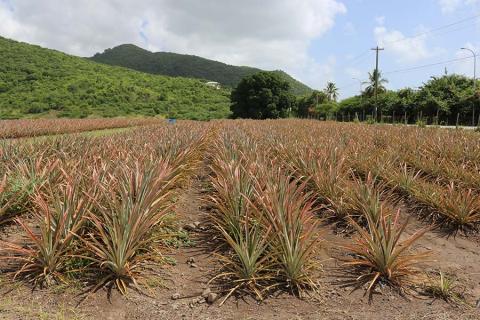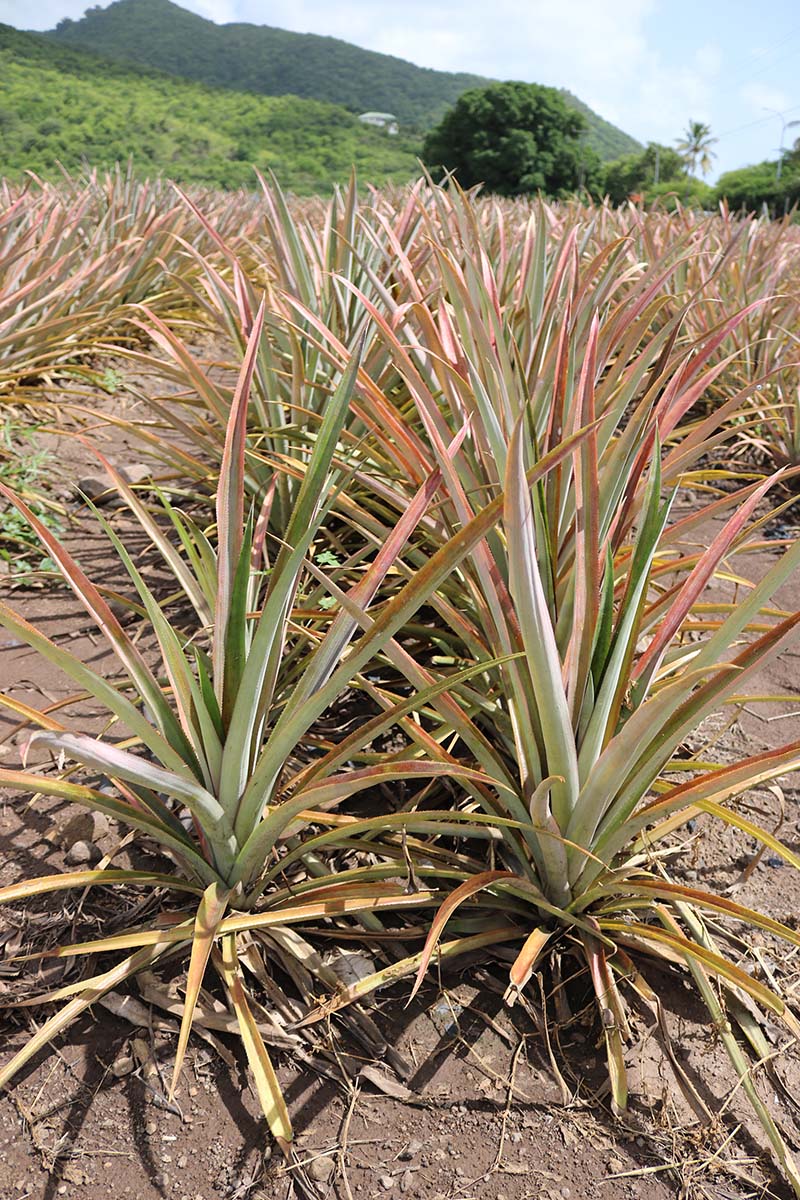
When the Arawak migrated to the Caribbean from South America in the 17th century, they brought with them the Black Pineapple. The Antigua Black pineapple is the Nation's most coveted pride and joy. It even stands atop the Antiguan coat of arms, a fitting tribute to a delight found nowhere else on the planet.
If you have ever heard of the pineapple upside down cake you would think how uncanny. Unlike the pineapples you find in the North American food markets you can really say this takes the cake.
Antigua Black pineapple, is known world-round as the sweetest and rarest variety. The Antigua Back pineapple grown near the tropical rain forest in Cades Bay actually grows upside down with the actual fruit in the earth and its rear spiked leaves above. They were once grown only by small, independent farmers, who worked the land according to the rules of nature.

These pineapples are raised for quality, not quantity, making their unmatched sweetness a true treat to uncover among Caribbean fruits. Local farmers take advantage of Antigua’s rich soil, moderate rain, and nearly endless sunshine to raise up these exemplars of pineapple perfection. They are not likely to be found in Supermarkets but rather in the St. Johns farmers market on the weekends where locals grow and sell them with pride to the general public.
In the late 1960s, the Ministry of Agriculture created a government-owned agricultural station, Cades Bay Pineapple Station. The Antiguan government established agricultural lands dedicated solely to cultivating these amazing fruits, allotting almost 20 acres of land to this National agricultural pride.
More recently the Antiguan Prime Minister has come under fire for his remarks on the Antiguan Black pineapple stating that there is something fundamentally wrong with the Black pineapple it has lost its flavour and grace. It is smaller and less sweet and he doesn’t know what they are preserving. Critics took to the air and swiftly denounced the Prime Minister's statement telling them that the pineapple Is overgrown in small areas and needs to be spread out.
The Prime Minister agrees but says something needs to be done. But what? What we do know is the government wants to privatize the lands around the Cades bay area to build housing and resorts but to whose detriment?



